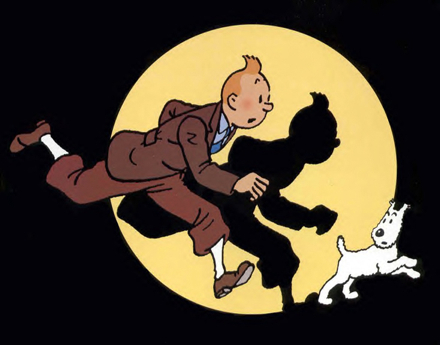Growing up in Morocco, my favorite comic book was Tintin, the swashbuckling globetrotter series that is being adapted into a feature film by Steven Spielberg. The New Republic reviews two biographies of the elusive creator of the series, Remi.
After the war, as he sought to defend himself from charges of incivisme (which may be roughly translated as “disloyalty”), Remi explained his conduct during the war as a kind of aesthetic quietism. Artists such as himself, he argued, had no special obligation to take a stand against political evil: they had a higher calling. This stance did not prevent him from being arrested, nor did it get him out of jail—his fame as the father of Tintin eventually got the charges dropped—but it did apparently assuage his own conscience. To the end of his life, he took virtually no responsibility for his wartime behavior.
Even as a collaborator, Remi was relatively innocuous. His worst crime was going along where he ought to have resisted. He is a study not in the banality of evil but simply in the banality of the banal. But Tintin himself is anything but banal, and Assouline devotes much of his book to analyzing him. Over the last decades of his life, Hergé worked hard to revise the Tintin adventures into a single, seamless tale. He erased as much as possible the evidence that his hero had changed between his first appearance in Le Petit Vingtième, in 1929, and the publication of Tintin and the Picaros in 1976. Assouline digs beneath this reverse-engineered unity to reveal a Tintin who evolved a great deal over time. He traces how Hergé developed and gradually added new characters to Tintin’s “family,” from the irascible Captain Haddock to the daft Professor Calculus. Politically, he charts the boy hero’s transformation from a political partisan fighting communism, Belgian colonialism and American capitalism in his first three adventures (all bugbears of the Catholic right in the early twentieth century) into a populist champion of the little guy, battling gangs, cartels, and villains. He even charts a deepening of Tintin’s emotional engagement, which culminated in 1960 in Tintin in Tibet, a highly personal book with echoes of Hergé’s real-life friendship with a Chinese art student, Chang Chong-Chen.




No comments:
Post a Comment